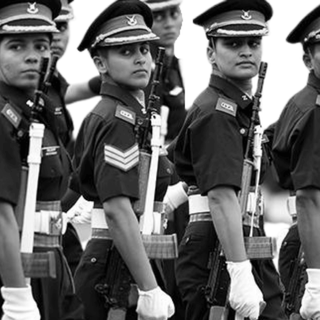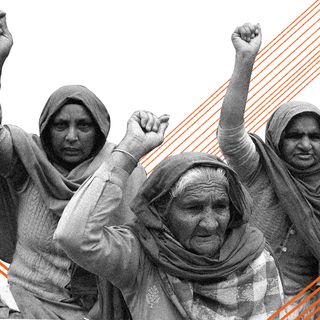The Chief Minister of Madhya Pradesh has announced a new system that will track women’s movements to ensure their safety — sparking outrage on social media.
Under the system that Shivraj Singh Chouhan, the CM of Madhya Pradesh, advocated, any woman moving out of her house for work will have to register herself at the local police station, and will then be tracked to ensure that she stays safe. As part of the same initiative, panic buttons will be installed for women in public transportation, and they will also be given helpline numbers to call in case of any threat or distress.
Chouhan also opined on the ongoing debate surrounding the potential raising of women’s legal age for marriage in India from 18 to 21 by saying: “I feel that the marriage age of daughters should be increased from 18 to 21 years. I want to make this a matter of debate, and the country and the state should reflect on this,” during his inaugural speech at the fortnight-long awareness programme for crime against women called Samman.
It is yet to be confirmed when the mechanism will come into effect, and whether the initiative will make it mandatory for women to register their movements with the authorities.
Related on The Swaddle:
National Commission for Women Rep Says Badaun Rape‑Murder Victim “Could Have Been Saved” Had She Stayed Home
The initiative by the CM is an attempt to address several instances of violence against women perpetrated inside public transport — including some in Madhya Pradesh. A Delhi-focused report from 2010 had found that 51% of women had faced harassment inside public transport — making the prospect of having to commute in them scary for many.
In the past, to address the rising rate of crimes against women in the national capital, the Delhi government had introduced ‘women-friendly policies’ like free rides in buses, public transport equipped with marshals, and installation of CCTV cameras in public places. While they were intended to ensure women’s safety, the policies had drawn censure for surveilling women as the best way to keep them safe, instead of focusing on programs to sensitize men to prevent crimes against women.
At the same time, there’s also no way to ensure that the information provided by the women to the authorities to keep themselves ‘safe’ will not be abused by the same authorities — which is already established as one of fundamental flaws with surveillance. Moreover, in India, police officers have themselves been accused of perpetrating sexual violence several times in the past — besides handling matters of women’s safety poorly.
In addition, the present measure to ensure the safety of women, comes at the cost of their personal freedom — by subjecting them to surveillance. As such, experts note that these means often become a mechanism to control women’s lives under the pretext of keeping them safe. “I would like to emphatically state in no uncertain terms, that the security of women achieved by curbing their freedom and liberty is no security at all,” the Former Chief Justice of India H.L. Dattu, had said in 2014.




